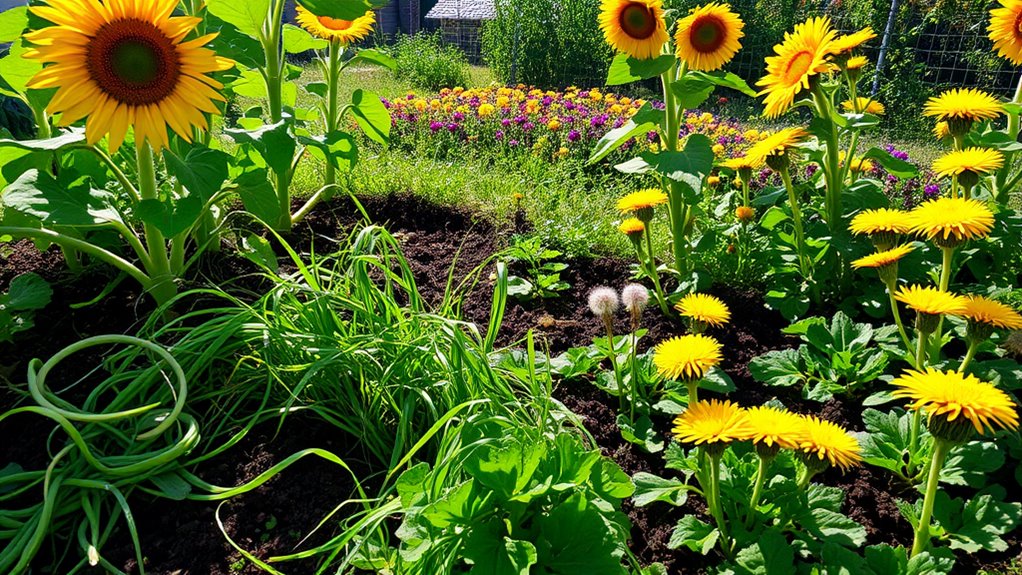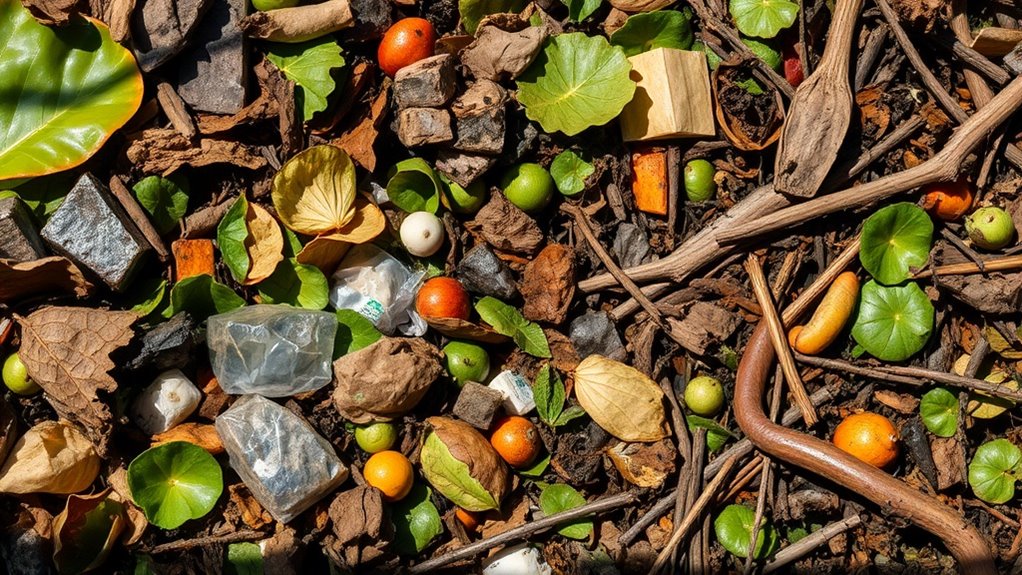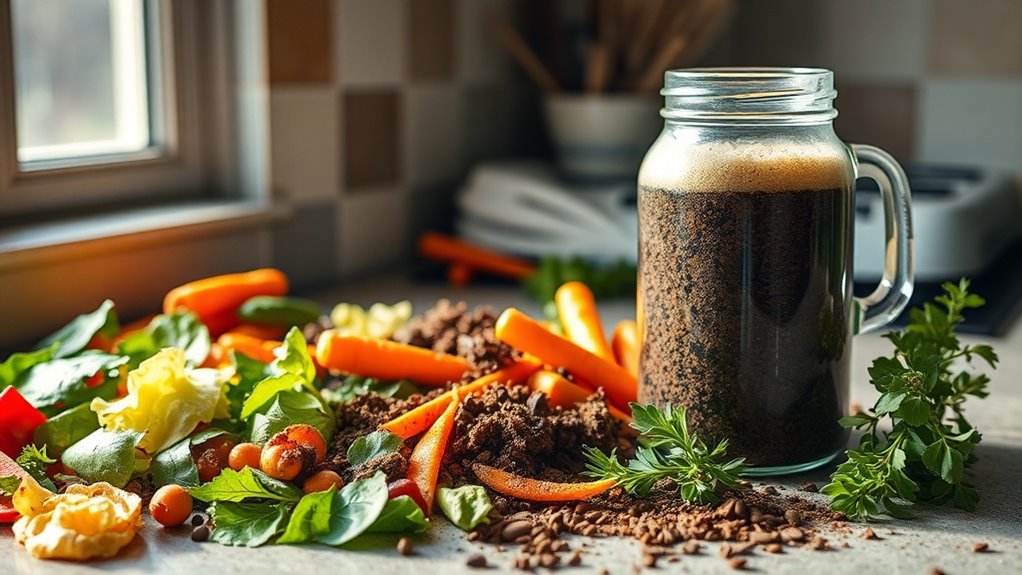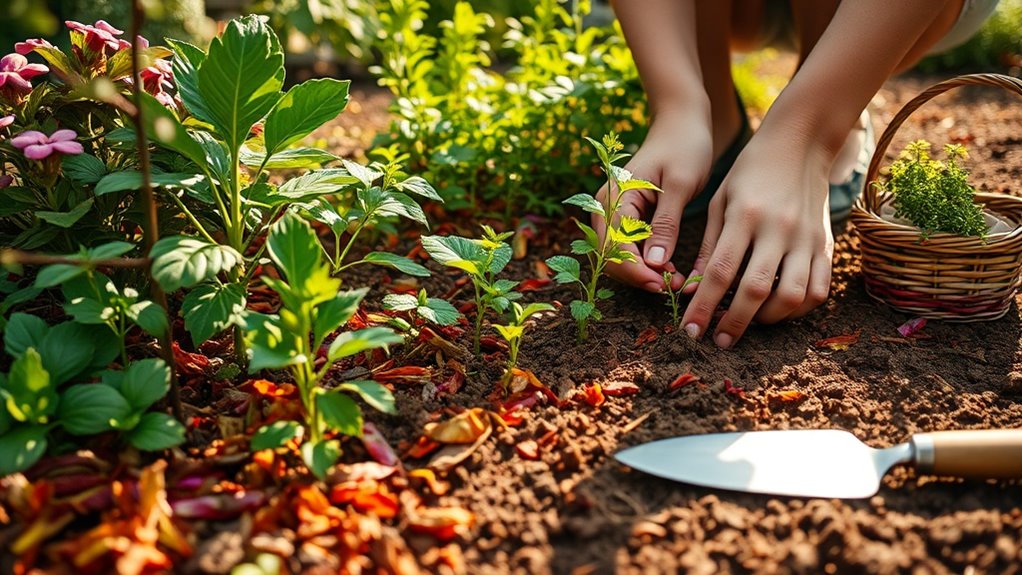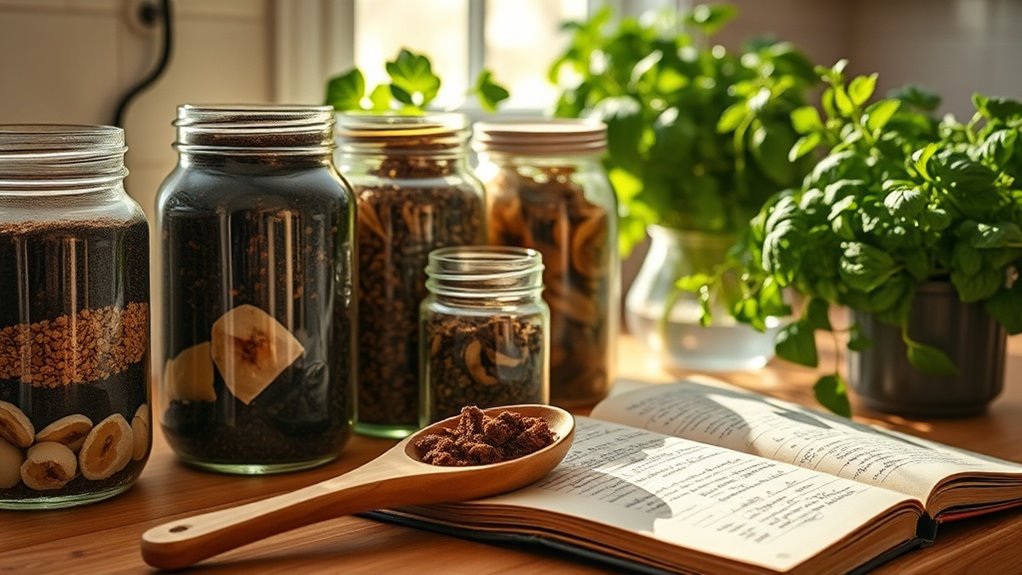Weeds That Are Actually Helping Your Garden
Many gardeners unknowingly overlook the benefits of weeds like dandelions and clover, which can actually enhance your garden’s health. These plants play crucial roles in aerating soil and fixing nitrogen, among other advantages. By recognizing their value, you might find that these so-called nuisances serve as allies in your quest for a thriving ecosystem. Curious about how these weeds contribute to your garden’s fertility and resilience?
Key Takeaways
- Dandelions attract pollinators and enrich soil fertility by releasing nutrients when composted or dying back.
- Clover fixes nitrogen in the soil, improving its structure and enhancing water retention for better plant growth.
- Chickweed provides nutrient-rich ground cover, retains moisture, and attracts beneficial insects that help control pests.
- Nettles enhance soil fertility with essential minerals while also deterring harmful pests through their strong scent.
- Purslane suppresses weeds, conserves moisture, and offers nutritional benefits, including omega-3 fatty acids and vitamins.
Dandelion: Nature’s Nutrient Booster
[Dandelions, often dismissed as pesky weeds, actually serve as nature’s nutrient booster for your garden. These beneficial weeds possess deep taproots that draw up essential nutrients from the soil, including nitrogen, potassium, and calcium. When dandelions die back or are composted, they release these nutrients, enhancing soil fertility.
Additionally, their vibrant yellow flowers attract pollinators, promoting biodiversity in your garden ecosystem. Dandelions also support natural pest control, as their presence can deter harmful insects and encourage beneficial ones.
You might also find that dandelion leaves are edible, adding a nutritious element to your meals.
Clover: The Soil Enricher
Clover thrives in gardens not just as a charming ground cover but as a powerful soil enricher.
This legume fixes nitrogen in the soil through a symbiotic relationship with bacteria in its roots.
By incorporating clover into your garden, you’re naturally boosting soil fertility, reducing the need for chemical fertilizers.
Its deep roots improve soil structure, enhancing water retention and aeration.
Additionally, clover’s dense growth suppresses weeds, minimizing competition for your desired plants.
When clover dies back, it adds organic matter, enriching the soil further.
Embracing clover can lead to healthier plants and a thriving garden ecosystem. Moreover, clover is a key indicator of soil health, signaling that your garden is benefiting from improved nutrient levels and biological activity.
Chickweed: A Pest-Repelling Ally
Chickweed isn’t just an annoying weed; it serves as a natural pest deterrent in your garden. This nutrient-rich ground cover can outcompete harmful pests while simultaneously attracting beneficial insects that help maintain a balanced ecosystem. Additionally, it can enhance the growth of nearby plants by acting as a natural ground cover that retains moisture and prevents erosion.
Natural Pest Deterrent
How can a common garden weed become your best ally in pest control?
Chickweed is more than just a nuisance; it naturally deters pests with its unique properties.
By growing chickweed, you’re creating an environment less inviting for harmful insects.
- Its dense foliage provides shelter for beneficial insects.
- Chickweed emits a scent that repels aphids and caterpillars.
- The plant’s growth habit can smother weeds that attract pests.
- It attracts predatory insects that feed on garden pests.
Embrace chickweed in your garden, and watch how this humble weed transforms into a powerful pest-repelling ally.
Nutrient-Rich Ground Cover
While many gardeners view chickweed as a pesky invader, it actually serves as a nutrient-rich ground cover that benefits your garden in several ways.
Chickweed’s dense foliage prevents soil erosion and suppresses weeds, allowing your desired plants to thrive. Its roots enhance soil structure, improving drainage and aeration.
Chickweed is packed with vitamins and minerals, including vitamins A and C, which can enrich the soil when it decomposes.
By incorporating chickweed into your garden, you’re not just covering bare soil—you’re boosting nutrient levels and fostering a healthier ecosystem.
Embrace its presence and reap the benefits of this unassuming ally.
Attracts Beneficial Insects
In addition to serving as a nutrient-rich ground cover, chickweed plays a pivotal role in attracting beneficial insects that can help maintain a balanced ecosystem in your garden.
By encouraging these allies, you can naturally combat pests and promote healthy plant growth.
Consider the beneficial visitors that chickweed lures:
- Ladybugs: Known for devouring aphids, they keep your plants safe.
- Hoverflies: Their larvae feast on pest insects, while adults pollinate.
- Parasitic wasps: They control pest populations by laying eggs in them.
- Bees: Essential for pollination, they enhance your garden’s productivity.
Embrace chickweed as a strategic ally!
Nettles: A Fertilizer Powerhouse
Nettles are more than just a nuisance in your garden; they’re a nutrient-rich powerhouse that can elevate your soil’s health. Packed with essential minerals like nitrogen, phosphorus, and potassium, these plants not only nourish your crops but also help deter harmful pests. Incorporating nettles into your garden can improve soil quality, making it more fertile and conducive to plant growth.
Nutrient-Rich Composition
Often overlooked, nettles are a remarkable addition to any garden, not just for their culinary uses but for their exceptional nutrient-rich composition.
When you add nettles to your soil, you’re introducing a powerhouse of essential nutrients:
- Nitrogen: Promotes lush, green growth.
- Calcium: Strengthens plant cell walls, enhancing resilience.
- Iron: Vital for chlorophyll production, ensuring vibrant foliage.
- Magnesium: Aids in photosynthesis, boosting overall plant health.
Incorporating nettles into your garden not only enriches the soil but also creates a thriving ecosystem, allowing your plants to flourish while reducing the need for synthetic fertilizers.
Natural Pest Deterrent
Adding nettles to your garden not only enhances soil fertility but also serves as a natural pest deterrent. Their strong scent can repel harmful insects, making your plants less appealing to pests. You can create a nettle-infused spray or simply plant them nearby to maximize their protective benefits.
| Pest Deterrent | Benefit |
|---|---|
| Strong Scent | Repels insects |
| Nutrient Release | Attracts beneficial bugs |
| Foliar Spray | Strengthens plant defenses |
Soil Health Improvement
Incorporating nettles into your garden can significantly enhance soil health, transforming it into a nutrient-rich environment for your plants.
These versatile weeds act as a natural fertilizer, providing essential nutrients and promoting microbial activity.
When you use nettles, you’ll notice:
- Increased nitrogen levels that fuel plant growth
- Enhanced potassium for stronger cell walls and better fruit production
- Rich iron content that boosts plant vigor
- Improved drainage and aeration, fostering healthier root systems
Yarrow: Attracting Beneficial Insects
Yarrow, with its delicate clusters of flowers and feathery leaves, serves as a powerful ally in your garden by attracting a variety of beneficial insects.
This resilient weed draws pollinators like bees and butterflies, essential for fruit and vegetable production.
Additionally, yarrow lures predatory insects such as ladybugs and lacewings, which feast on harmful pests like aphids.
By incorporating yarrow into your garden, you create a diverse ecosystem that supports natural pest control. Its flowers bloom throughout the growing season, ensuring a steady supply of food for these beneficial insects, ultimately leading to a healthier, more productive garden. Furthermore, using yarrow can enhance your garden’s resilience against pests by natural sprays that deter harmful insects.
Plantain: A Natural Medicinal Herb
Plantain, often overlooked as a mere weed, is actually a powerhouse of natural medicine with a rich history of use in herbal remedies.
You can harness its benefits for various ailments by using its leaves.
Consider the following:
- Anti-inflammatory properties: It soothes irritated skin and reduces swelling.
- Wound healing: You can apply crushed leaves to minor cuts and scrapes.
- Respiratory relief: Infusions may help alleviate coughs and bronchial irritation.
- Digestive aid: It can help soothe digestive issues when consumed as tea.
Additionally, plantain is one of the potent healing herbs noted for its versatile uses in traditional medicine.
Incorporating plantain into your garden not only enhances your space but also offers these valuable health benefits.
Purslane: A Nutrient-Rich Ground Cover
While plantain offers medicinal benefits, purslane stands out as a nutrient-rich ground cover that can significantly enhance your garden’s health. This succulent thrives in poor soil, suppressing weeds and conserving moisture. It’s packed with omega-3 fatty acids, vitamins, and antioxidants, making it both an ecological ally and a culinary treasure. Additionally, purslane can be regrown sustainably by harvesting leaves while allowing the plant to continue growing. Here’s a quick comparison of purslane’s benefits:
| Nutrient | Amount per 100g | Benefits |
|---|---|---|
| Omega-3 Fatty Acids | 0.1 g | Supports heart health |
| Vitamin C | 21 mg | Boosts immune function |
| Iron | 1.99 mg | Aids in oxygen transport |
| Calcium | 65 mg | Supports bone health |
| Antioxidants | Varies | Protects against oxidative stress |

